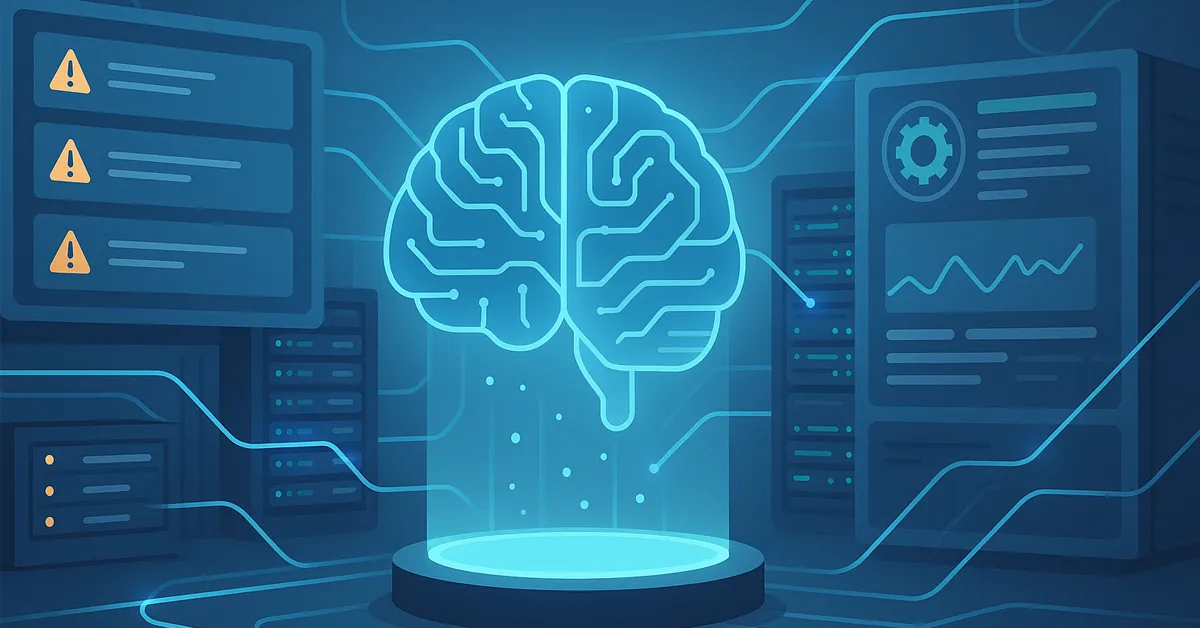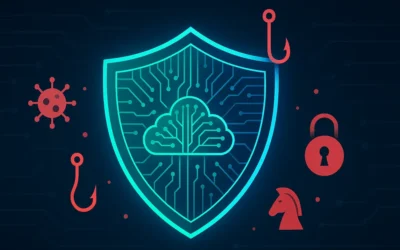As IT infrastructure grows more complex, organizations are turning to Artificial Intelligence (AI) to optimize operations, improve security, and reduce downtime. Known as AIOps, this approach leverages AI, machine learning, and automation to transform how IT teams manage infrastructure, detect anomalies, and resolve issues faster than ever before.
Quick Summary
- AI enhances IT operations by automating troubleshooting, optimizing resources, and predicting failures.
- It improves cybersecurity through real-time threat detection and mitigation.
- Organizations benefit from reduced downtime, lower operational costs, and increased IT team efficiency.
Why AI in IT Operations?
Traditional IT monitoring tools often fail to keep up with dynamic, cloud-native environments. With hybrid and multi-cloud ecosystems, IT teams must handle massive volumes of logs, alerts, and incidents daily. AI-driven operations help by offering intelligent, automated insights that allow teams to proactively resolve issues before they impact business users.
Using machine learning in IT operations, AI streamlines workflows, automates responses, and makes data-driven decision-making a reality.
Top AI Use Cases in IT Operations
1️⃣ AI for Incident Management & Automation
Problem: Manual resolutions delay recovery and increase downtime costs.
AI Solution: IT Service Management (ITSM) platforms with AI automatically categorize, prioritize, and resolve incidents. This reduces MTTR (Mean Time to Repair) and prevents service disruptions.
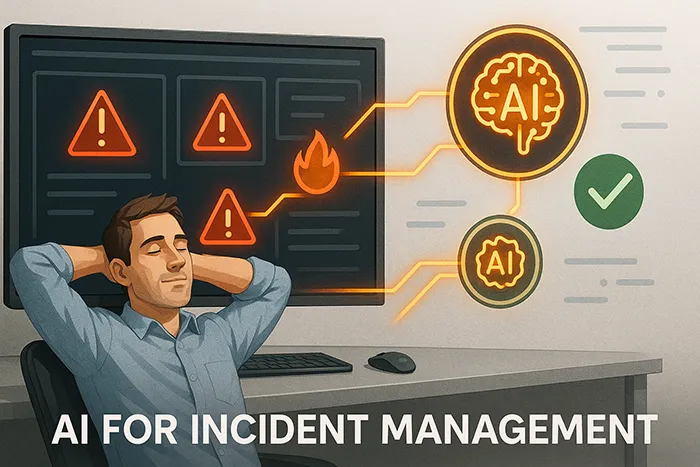
2️⃣ Predictive Analytics for System Health Monitoring
Problem: Businesses often suffer unexpected outages that impact revenue.
AI Solution: Predictive analytics tools forecast hardware and software issues, allowing IT to perform preventive maintenance before problems occur.
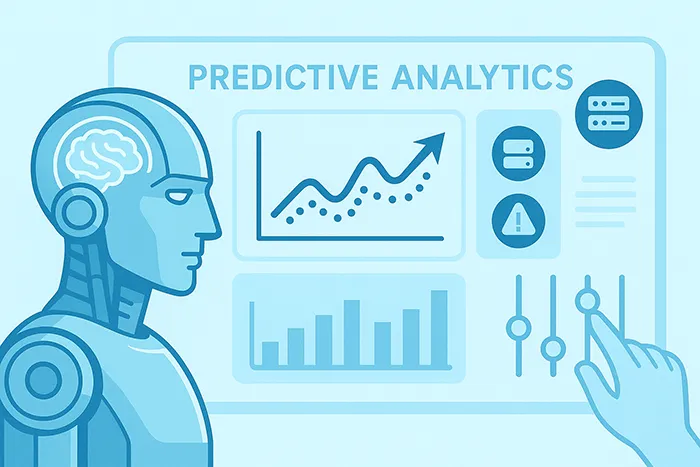
3️⃣ AI-Powered Security & Threat Detection
Problem: Traditional security tools can’t keep up with modern cyber threats.
AI Solution: Platforms like CrowdStrike, Splunk, and Microsoft Sentinel use AI for real-time anomaly detection, automated threat response, and Zero Trust security. Learn more about the top cybersecurity tools you should know.
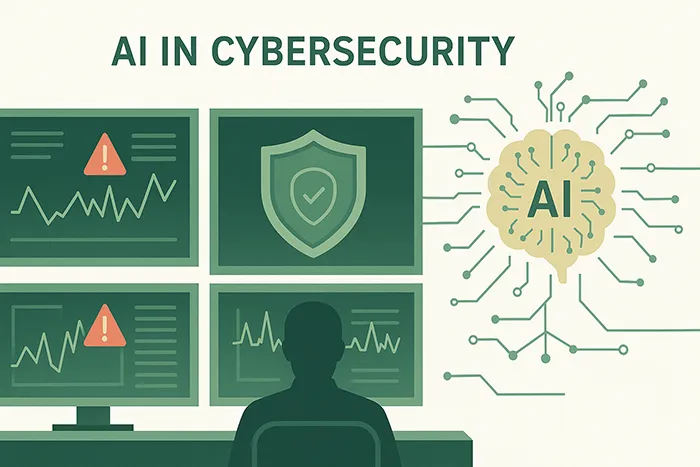
4️⃣ AI for IT Resource Optimization
Problem: Cloud resources are often underutilized or overprovisioned, driving up costs.
AI Solution: AI-based monitoring platforms dynamically scale cloud resources, reducing waste while meeting demand.
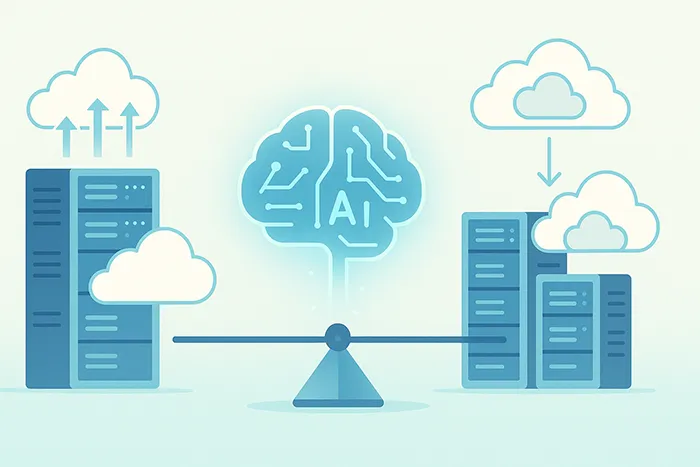
5️⃣ AI in Compliance & Risk Management
Problem: Manual compliance auditing is tedious and error-prone.
AI Solution: AI automates compliance checks, highlights risks, and ensures adherence to standards like HIPAA, PCI DSS, and GDPR.
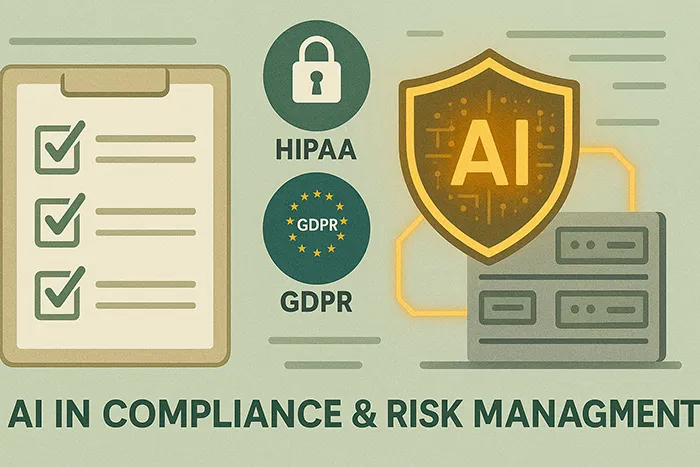
Key Benefits of AI in IT Operations
| Benefit | Impact |
|---|---|
| Faster Issue Resolution | AI automates troubleshooting, reducing incident response times by up to 70%. |
| Enhanced Security | AI identifies threats instantly and automates containment, minimizing breach impact. |
| Cost Savings | AI optimizes infrastructure usage, cutting energy and cloud expenses significantly. |
| Improved Compliance | AI ensures adherence to global regulations by automating risk assessments. |
Challenges & Considerations
- Data Privacy: Sensitive IT and customer data must be handled securely during AI processing.
- Legacy Integration: Older infrastructure may lack compatibility with AI-driven tools.
- Skill Gaps: IT teams often need training in AI and data science to deploy AIOps effectively.
Future Trends in AI for IT Operations
- Self-Healing Systems: Infrastructure that identifies and resolves issues without human input.
- AI-Driven DevOps: AI enabling real-time automation in CI/CD pipelines.
- Fully Autonomous IT Workflows: AI systems provisioning, updating, and resolving incidents end-to-end.
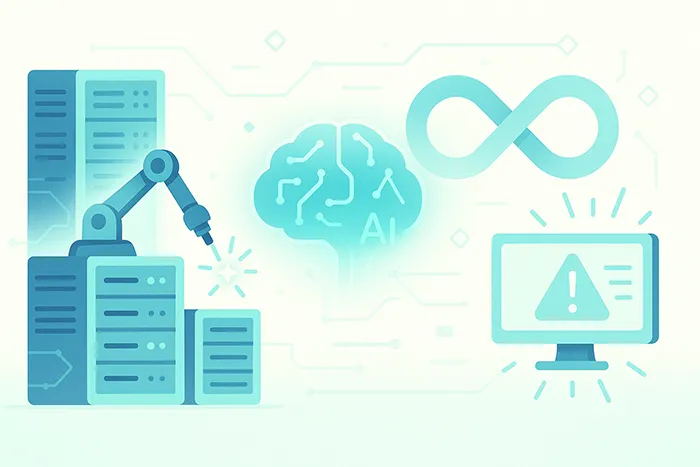
Final Thoughts & Takeaways
AI in IT operations is no longer optional—it’s a strategic necessity. From predictive analytics and incident automation to compliance monitoring and resource optimization, AI empowers IT teams to deliver faster, more secure, and more reliable services.
As the industry moves toward fully autonomous IT operations, organizations must balance automation with governance, ensuring ethical AI deployment, data privacy, and compliance. Explore related insights in our guide on the future of network automation.
References
Frequently Asked Questions
How does AI improve IT security?
AI enables real-time anomaly detection, identifying threats before they escalate. It automates containment and response to minimize risk exposure.
Can AI fully replace IT teams?
No. AI supports IT operations but requires human oversight for governance, ethics, and complex decision-making.
What are the best AI tools for IT operations?
Popular tools include IBM Watson AIOps, Splunk, CrowdStrike Falcon, Microsoft Sentinel, and Dynatrace.

